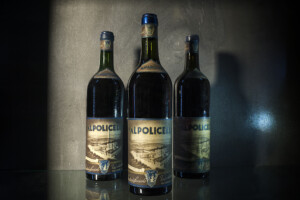
In the growing passion for drama periods, from which, increasingly more often, lucky Tv series arise – the trend of the moment, next to historical novels, and costume dramas – also wine has many histories to narrate, rich in characters whose lives intersect with Italian events, made up of passions, loves, friendship, politics, revolutions, intelligence, and, the list goes on, on the background of places, which, today, are among the symbols not only of territories where Italian labels arise, but also, and mainly of cultural heritage of Italy. This is the case of “Sangue delle Langhe. La saga dei Barolo”, the novel signed by Marina Marazza, award-winning author of really happened essays and narratives, ed – which narrates the extraordinary life of Juliette Colbert, who left France for Piedmont, passing into the annals of history as Giulia, the Marquise of Barolo.
At the sumptuous crowning of Napoleon Bonaparte, in Paris, French noble Juliette Colbert, lady-in-waiting of Empress Giuseppina Beauharnais, born in 1786, in Maulévrier, in Valdea, second child of Counts Colbert, and descendant of Jean-Baptiste Colbert, who was Ministry of Finances of Louis XIV, the Sun King, knows Carlo Tancredi Falletti di Barolo, belonging to one of the most important aristocratic families of Piedmont: it is love at first sight, and few years later, Juliette becomes Giulia di Barolo, his wife, and she follows him to the splendid and terrible Turin of Restoration, establishing at Barolo Palace. In the jails of Savoy city, meanwhile, the proud uxoricidal Angela Agnel is incarcerated: she stabbed the drunk husband who tried to abuse the daughter. Different women, opposite lives that destine enjoys to intertwine, narrated in the novel (Edizioni Solferino, 2025, pages 384, cover price 20 euros), in the ferment of Industrial Revolution, of the first wars for the rights of workers, of social conquests of which Giulia di Barolo soon becomes fearless supporter, the first to raise, in Italy, the problem of feminine prisons, committing to reform Piedmontese jails, where there is so much to do because prisoners languish without any hope of liberation, but also among the poors of the city who ask for bread and justice.
And, Giulia finds the time to deal with, putting them at income again, family properties in Langhe, where a “vinello” is produced, which, with the new methods imported by France, could become a more noble and full-bodied nectar, even Italian “wine of the king, and the king of wines”, according to the intuitions of the last Marquise of Barolo, who wanted to build new wineries where to vinify grapes in great oak barrels, and, which, from the ancient Castello della Volta (which, among many famous hosts, hosted writer Silvio Pellico, author of “Le Mie Prigioni”), sent smaller bottles, one day by day, to King Charles Albert, first among the collectionists of Barolo, who, exactly thanks to Giulia, acquired the body, stability, and nobleness of today. Everything, alongside with the growth of the same interest by Camillo Benso Count of Cavour, who, in the same years of half XIX century, and in the same places, between Turin and Langhe, where they met, started the production of Nebbiolo, while Unification of Italy was being made. A history, protected and brought forward, starting from the five ultracentennial “Botti della Marchesa” - “Marquise Barrels”, still today perfectly entire and efficient, and bu rare vintages of Barolo of the end of XIX century by winery Marchesi di Barolo, headed by family Abbona, in the hearth of Barolo, reference of Piedmontese and Italian wine.
Meanwhile, Turin aristocracy interrogates: why all this excitement? Maybe because the poor Marquise of Barolo can’t have a child? Maybe if she concentrated on her family, things would change? And Giulia is willing to do a lot, just to bring the long-awaited heir into the world: medicines, therapies, even spells. But she is not willing to give up her ideas, nor her love, nor her battles.
Langhe blood flows in the compelling pages of the novel: in the veins of protagonists, in the fruit of vineyards, in the crimes blooding on the denigrated quarters of the civilization, and in revolutions which are prepared among power palaces. And a destiny of blood, hardships and triumphs awaits two bold women determined to change their time. When he died in 1864, Marquise Giulia , widow and without heirs, established the Ente Morale Opera Pia Barolo, to which she donated all her goods, to perpetuate her numerous charitable initiatives, and which, still today, as Opera Barolo, carries on her legacy.
Marina Marazza collaborates with different magazines including “Io Donna” of “Corriere della Sera”, among the titles published with Solferino “L’ombra di Caterina” (2019), “Io sono la strega” (2020, winner of Salgari Award, Asti Award, and of Selezione Bancarella Award (2021), “Miserere” (2020), “La moglie di Dante” (2021), “Le due mogli di Manzoni” (2022, winner of Acqui Storia Award), “Il bambino di carta” (2023) e “Il segreto della monaca di Monza” (2024).
Copyright © 2000/2026
Contatti: info@winenews.it
Seguici anche su Twitter: @WineNewsIt
Seguici anche su Facebook: @winenewsit
Questo articolo è tratto dall'archivio di WineNews - Tutti i diritti riservati - Copyright © 2000/2026